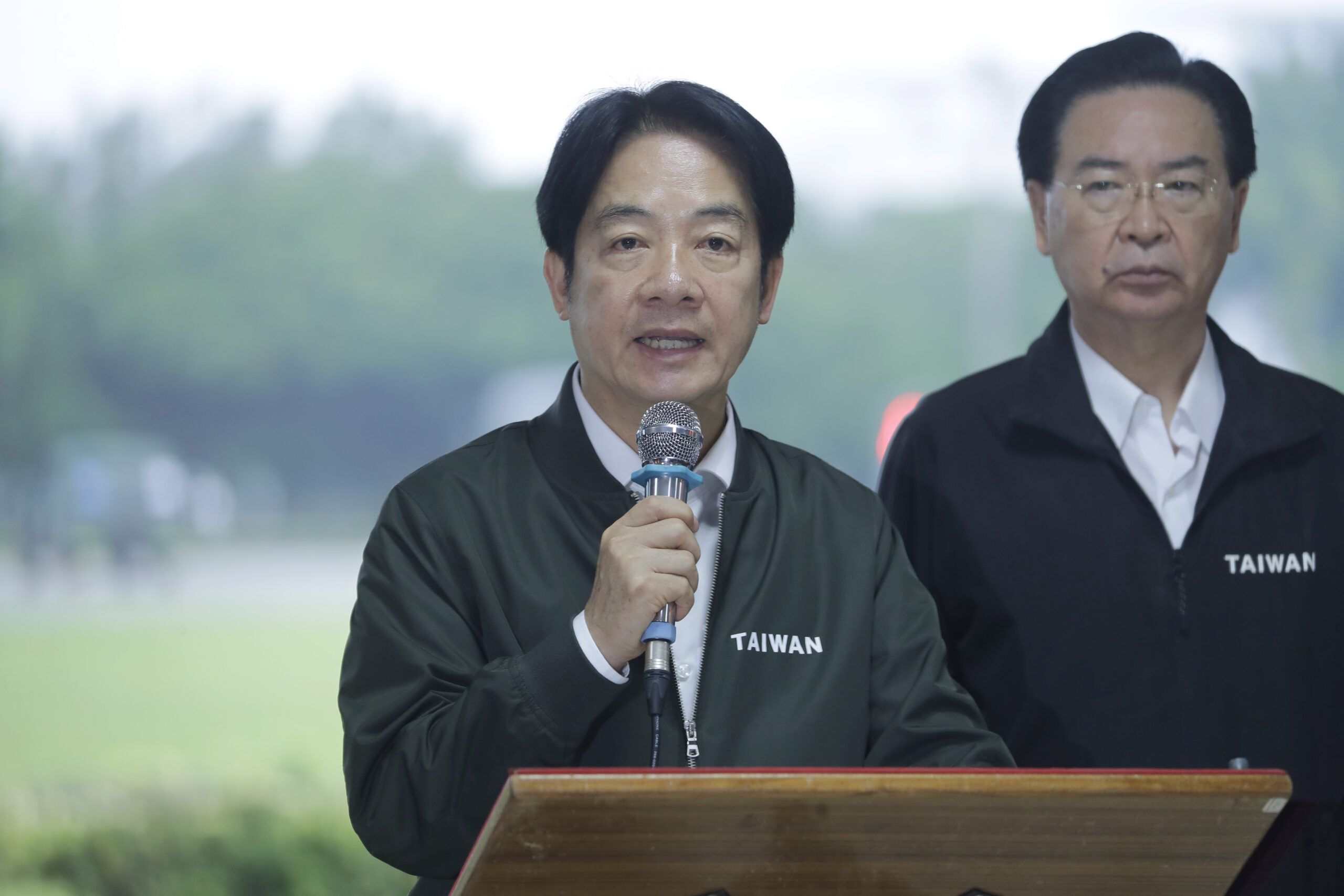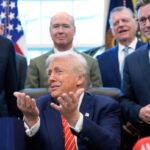

TAIPEI, Taiwan — Taiwan is confident the United States will be a reliable partner, regardless of who is president next year.
Taiwan’s new deputy foreign minister, Chung-kwang Tien, told the Washington Examiner the U.S. and Taiwan have history, so the relationship will be “rock solid” no matter whether President Joe Biden or former President Donald Trump wins another term in this November’s election.
“Taiwan and the United States, we’ve been fighting two world wars, and we have been shoulder to shoulder,” Tien said. “When Taiwan first started, when we came here, we received a lot of U.S. aid. That really set a very good foundation for Taiwan’s development.”
Tien, who became deputy foreign minister this week after President Lai Ching-te’s inauguration, downplayed the prospect of Trump’s second coming, contending elections are a “very common practice in any democracy.”
Trump is considered to be friendly toward Taiwan after breaking precedent and speaking with Lai’s predecessor, former President Tsai Ing-wen of the same Democratic Progressive Party, during his own transition in 2016. But Republicans, including onetime GOP presidential candidate Vivek Ramaswamy, have expressed skepticism toward Taiwan. Ramaswamy, who could become a member of Trump’s second administration, proposed during the primary that the U.S. only defend Taiwan until it can be semiconductor independent.
“Who is going to be elected is just beyond our control,” Tien said during a two-hour briefing for a small group of foreign reporters. “We have to, once again, to show to the world we will be a valid, very valuable partner for United States or in other countries, democracies, in the world.”
“So we keep a very close watch about the election,” he continued. “We are not going to be involved. As for ‘Trump going to win’ or ‘Biden going to win,’ we wish them all the best. The United States people, they are going to make the choice.”
Of former House Speaker Nancy Pelosi’s (D-CA) trip to Taiwan in 2022, after which China conducted military drills around Taiwan and severed military-to-military communication with the U.S., Tien said the island appreciates support from “any person,” irrespective of “what the consequences.”
“We cannot think of the consequence, we cannot deny, we cannot refuse people come to Taiwan to show their support,” he said. “The things we probably we have to ask the other side: Why you going to have this actions against someone shows goodwill to one country? I think that question should go to the other side. … So anyone come to Taiwan, [irrespective] of the consequences, we welcome them to come.”
CLICK HERE TO READ MORE FROM THE WASHINGTON EXAMINER
During a press briefing earlier this week, Taiwanese Ministry of Foreign Affairs spokeswoman Catherine Hsu, director-general of the Department of International Information Services, was asked about Ramaswamy’s comments from last summer. Part of Taiwan’s “value” as a U.S. partner is its reputation as “Silicon Island,” producing almost 70% of the world’s semiconductors and dominating advanced microchip manufacturing. Taiwanese companies, including the Taiwan Semiconductor Manufacturing Company, have explored directed investment opportunities in the U.S.
“The government would have great confidence in Taiwan-U.S. relations right now,” Hsu said of Lai’s administration. “That can be testified the closer trade talk we call 21st Trade Initiative, and that can be also testified by the closer military collaborations. … So we didn’t see there’s any concern between the two countries’ collaboration.”





